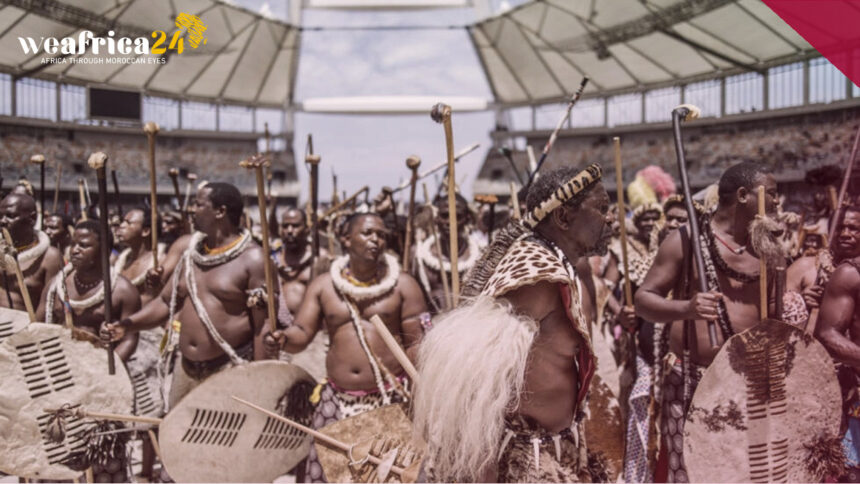In South Africa, an extraordinary series resurrects the myth of Shaka Zulu. Nearly four decades after the groundbreaking television phenomenon produced by South African public television and broadcasted globally, King Shaka returns to African screens for DStv subscribers. This new series aims to shed the Western perspective, offering a portrayal closer to reality with the involvement of historians. The dialogues are in Zulu, accompanied by subtitles, enhancing authenticity.
Despite his short reign from 1817 to 1828, the story of Shaka Zulu continues to captivate South Africans. Whether in books, animated depictions, or television series like the one directed by Angus Gibson, the fascination remains strong. Gibson shares his initial apprehension, acknowledging the immense passion that South Africans hold for Shaka Zulu: “I was a bit apprehensive at first because I know how deeply South Africans are enthralled by Shaka Zulu, but so far, the series has been well received.”
The series aims to be deliberate in its storytelling approach. Initially, it establishes Shaka Zulu within a backdrop of rival kingdoms, as explained by the director: “It’s somewhat reminiscent of Game of Thrones, where no single character initially dominates the narrative until Jon Snow emerges as the hero later on. In this series, the birth of Shaka doesn’t occur until the end of episode 4.” By taking its time to set the stage, the series allows for a gradual development of the storyline, building anticipation for Shaka’s eventual emergence as a central figure.
In the yet-to-be-produced second season, Shaka will ascend to become the king of the Zulus, while a third season is planned to depict his reign, dominance, and ultimate downfall as a formidable warrior and unifier of the Zulu nation. Since the original airing of the Shaka Zulu series in 1986, historians have made significant progress in their research, particularly in terms of representing the Zulu king. By delving into historical sources, they have been able to provide a more nuanced perspective, challenging the prevailing mythological portrayal of Shaka as a bloodthirsty leader or a semi-divine figure. These advancements in historical scholarship allow for a more balanced understanding of Shaka’s character.
Despite the limited number of available historical documents, a more accurate depiction of Shaka Zulu has emerged, according to Dan Wylie, former professor of literature at Rhodes University, who was consulted for the Shaka iLembe series. Wylie explains, “In the 1970s, Shaka was often portrayed as superhuman. He was either negatively compared to a bloodthirsty monster like Attila or positively depicted as a nation builder, a boundless conqueror in the likes of Napoleon or Alexander the Great. However, these comparisons are highly distorted. Historians have demonstrated that Shaka was simply an ordinary human being with talents and limitations, subject to political constraints, but undoubtedly the most exceptional figure of the region during that time. Shaka was not the sole perpetrator of violence; he was also a man on the defensive. He needed men, women, and livestock. His objective was more about expanding the Zulu nation rather than engaging in massacres.”
These insights highlight the complexities surrounding Shaka’s legacy, revealing a more nuanced understanding of his motivations and actions. The historical evidence portrays Shaka as a significant figure who sought to strengthen and expand the Zulu nation, rather than a purely bloodthirsty tyrant.







